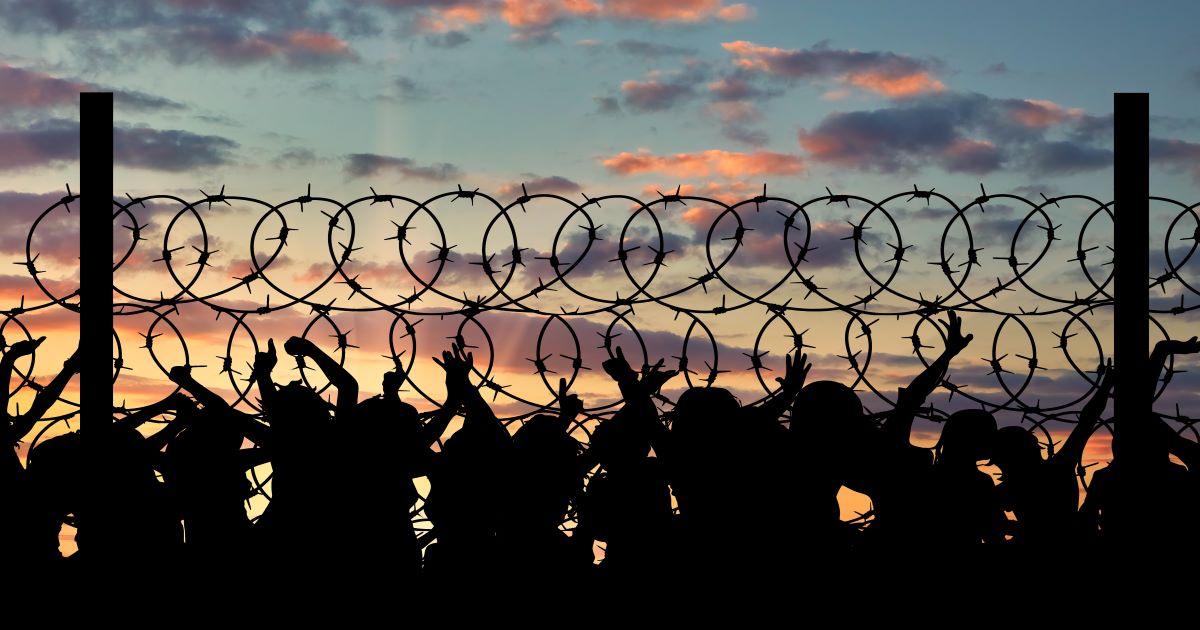Asylum policy in Hungary between 2019 and 2021

In 2018, the Hungarian Helsinki Committee participated in an EU-funded project to investigate whether or not refugees in detention were able to exercise their rights under EU Directive 2012/29. The aim was to promote the directive in Hungary. (Hungarian Helsinki Committee 2018)
In 2019, when spending a week in Hungary, holding various meetings with the government, local NGOs and some members of the judiciary, Dunja Mijatovic, the Council of Europe Commissioner for Human Rights and her team had very negative perceptions of the Hungarian government. According to the May report 4 subjects have come into focus:
1) the right to asylum and the human rights of refugees;
2) the situation of domestic rights defenders and NGOs;
3) independence of the courts; and
4) equality between women and men.
In relation to the right to asylum, the Commissioner called on the Hungarian government to end the crisis caused by mass immigration since 2016, as, based on the available data, it was unjustified. She summoned the government to not limit the number of refugees entering transit zones and to repeal the provision on the automatic rejection of asylum applications. She also called on the government to stop its anti-refugee and anti-foreigner campaign. (Hungarian Helsinki Committee 2019a):
In June 2019, the Helsinki Committee submitted a legislative proposal to the Hungarian government on the release of the most vulnerable asylum seekers and the abolition of starvation in detention, because from March 2017, asylum seekers, except for unaccompanied minors under 14, had to wait in transit zones for the conclusion of their asylum procedure. The inhumane conditions, starvation and prison-like detention in transit zones have been confirmed by several reputable European organizations (UNICEF, GRETA, Lanzarote Commission, UNHCR). (Hungarian Helsinki Committee 2019b)
In July 2019, the European Commission launched infringement proceedings against Hungary before the Court of Justice of the European Union over the Stop Soros Act, because Hungarian legislation was incompatible with EU law in the following areas.
- Criminalization of assistance to asylum seekers
- Unlawful restriction of the right to asylum and introduction of new grounds for inadmissibility of asylum applications. (Hungarian Helsinki Committee 2019c)
In September 2019, the Hungarian government extended the “mass immigration crisis situation” for another six months, which was no longer justified in view of the number of immigrants in Hungary and, according to the Helsinki Committee, its suspension would pose no threat to the Hungarian population. The extraordinary legal order that this entails did pose a threat to the asylum system, or in the area of law enforcement and public procurement. (Hungarian Helsinki Committee 2019d)
30 heads of families detained in Tompa have petitioned the management of the transit zone because they have been held in detention for months with their children, despite having entered the zone legally and not having committed any crime. Their detention was for an indefinite period and they were given no information about how long they would be held there. Fewer and fewer asylum applications were accepted (many without examination), but these people could not legally return to their home countries or to Serbia. The Hungarian government has done everything it could to make sure that refugees would not want to settle here nor feel well. The most nefarious act was food deprivation. Refugees did not receive adequate spiritual support, children did not receive any education, and adults did not receive language training. (Hungarian Helsinki Committee 2019e)
In November, in a case of two former refugees, which was appealed by the Hungarian government, a new judgment was issued where the injured refugees were each awarded €5,000 in compensation because at the time of the establishment of the transit zones they were both deported back to Serbia after 23 days of detention without their asylum applications being processed. With the assistance of the Hungarian Helsinki Committee, they appealed to the Strasbourg Court, where, in 2017, 7 judges agreed that the Hungarian government had indeed held the refugees in captivity. The Hungarian government appealed the decision, so the case was referred to the Grand Chamber, where 17 judges examined the issue and there were discrepancies with the initial judgment. The final result was the compensation, but the matter of unlawful detention has still not been resolved by the outcome of this proceedings. (Hungarian Helsinki Committee 2019f)
In March 2020, the CJEU ruled that the arbitrary law introduced by the Hungarian government, which defined the concept of a safe transit country, is against EU law. The Hungarian government rejected asylum applications one after another, almost immediately, because the two transit zones where the applications could be made only received refugees from Serbia, where they were not in danger or where their protection was guaranteed. For this reason the government tried to send back refugees to Serbia on the grounds of inadmissibility. Abolishing this option provided the chance for hundreds of refugees who had been waiting for their application to be examined. (Hungarian Helsinki Committee 2020a)
In May 2020, a Luxembourg court ruled that the Hungarian government was illegally detaining refugees in transit zones. The detention period has been prospectively capped at 4 weeks and after the 28 days have expired, the government shall be obligated to ensure that asylum seekers are provided with adequate conditions. Detention may only last longer than 4 weeks with justification and court authorization. The judgment also ruled that refugees whose applications have been unlawfully rejected by the government on the grounds of a safe transit country shall be given a new opportunity to submit their applications and have them fairly assessed. (Hungarian Helsinki Committee 2020b)
In May 2020, Gergely Gulyás (Minister of the Prime Minister’s Office) announced that transit zones would be abolished in the country and although they disagree with the Luxembourg court’s ruling, they are obligated to comply with it. In the future, however, asylum applications will only be accepted at representations outside the country’s borders. He also stated that 280 people will be transferred to reception centers. (Index 2020)
Although there was no provision to abolish transit zones, only the maximization of detention period in 28 days – longer if justified -, the government closed them nonetheless. This still did not solve the situation however, because the Hungarian asylum issue was still the subject of discussion due to the previous measures and the treatment provided.
In December 2020, the European Commission ruled that Hungary had violated international law on EU immigration policy in several points (asylum seekers could only apply in the transit zone, but they had limited access thereto, they were detained in the transit zone until the end of the procedure or were deported from the country). The EU’s border protection agency Frontex also withdrew from the country in January 2021 because of illegal deportations. (Index 2021a)
In March 2021, the European Court of Human Rights awarded compensation to 5 Iranian and 4 Afghan nationals for the inappropriate conditions in the Hungarian transit zone and the undue processing of their asylum applications, and for the fact that they had their freedom of movement restricted. (Index 2021b)
In July 2021, the European Commission drew attention to the need for EU Member States to ensure that non-EU nationals staying on their territory or at their borders can exercise their right to apply for international protection, even without valid identification documents. At the time of the closure of the transit zones, Hungary introduced a provision stipulating that in order to apply for asylum in Hungary applicants must first submit a letter of intent for the application at a Hungarian embassy in the EU and must be in possession of an entry permit issued for this purpose. This regulation limits the rights of refugees. Therefore the Court summoned Hungary. (Privatbankár 2021)
In August 2021, Afghan refugees were housed in a container camp in Röszke, most likely in a former transit zone. In Hungary they are not automatically granted the refugee status, they are not admitted, they are only exfiltrated. Statuses may even vary between families depending on the immigration procedure. (Index 2021c)
Even this brief summary shows that Hungarian asylum policy can be challenged from several angles in terms of EU rights and obligations. The abolition of transit zones has not improved the situation for refugees, nor has it simplified the processing of their applications or the reception process.


